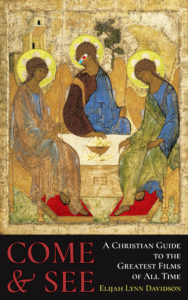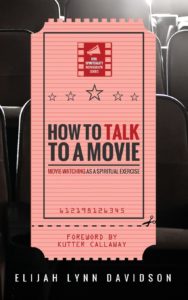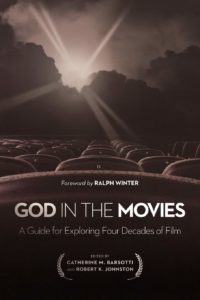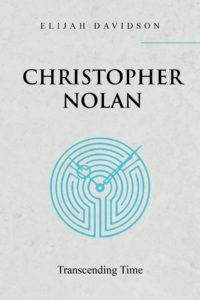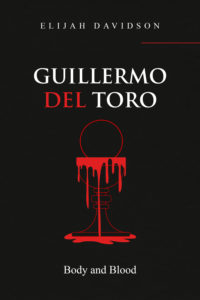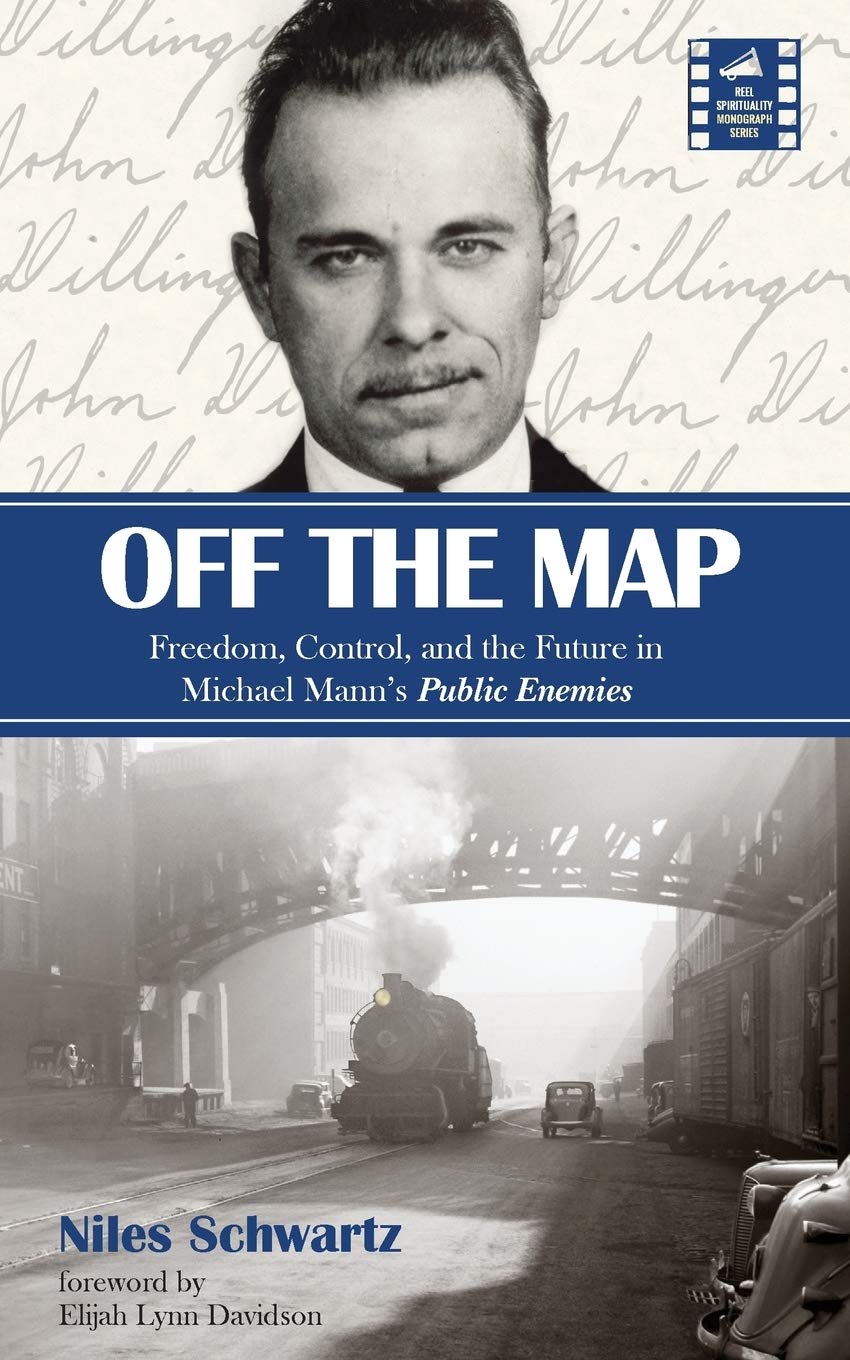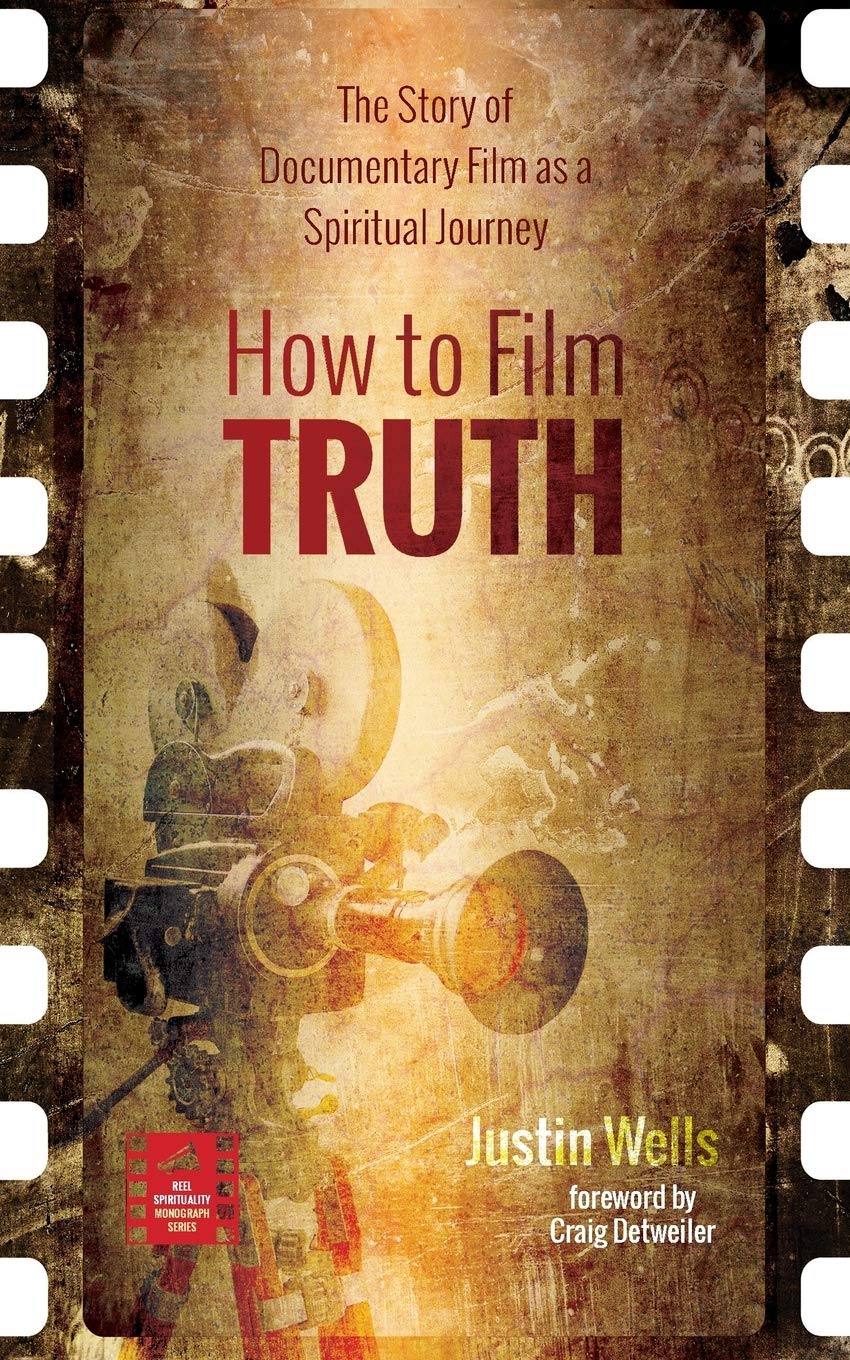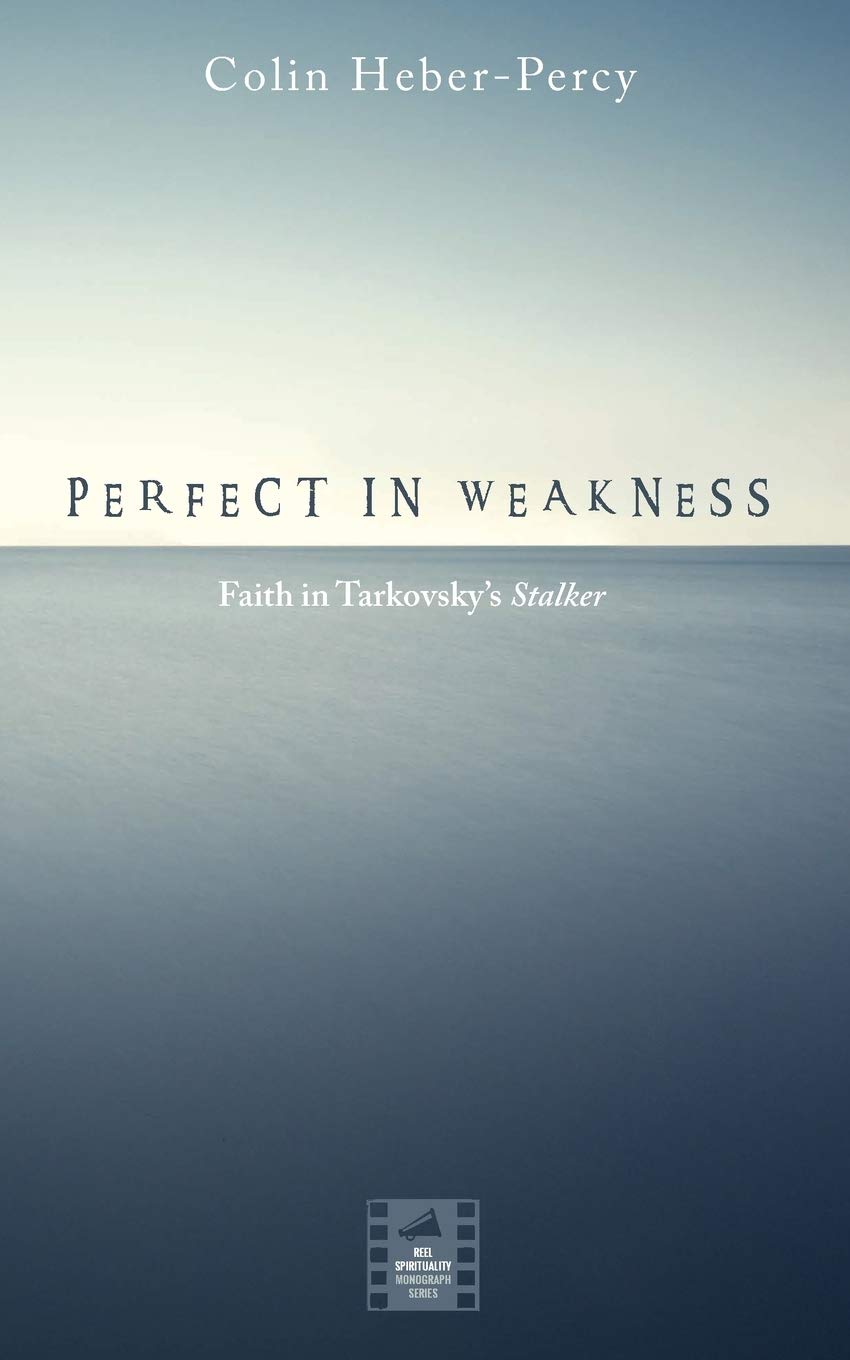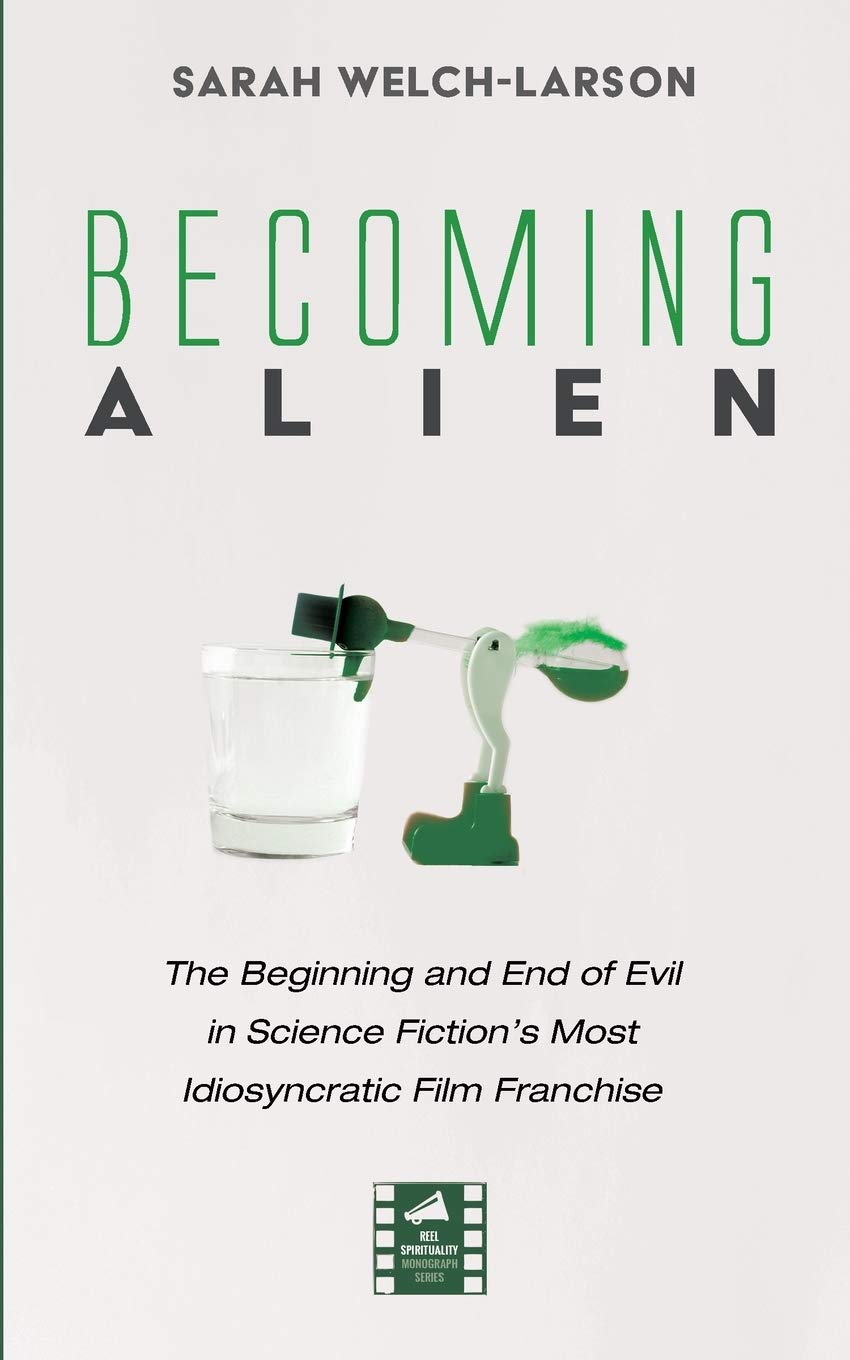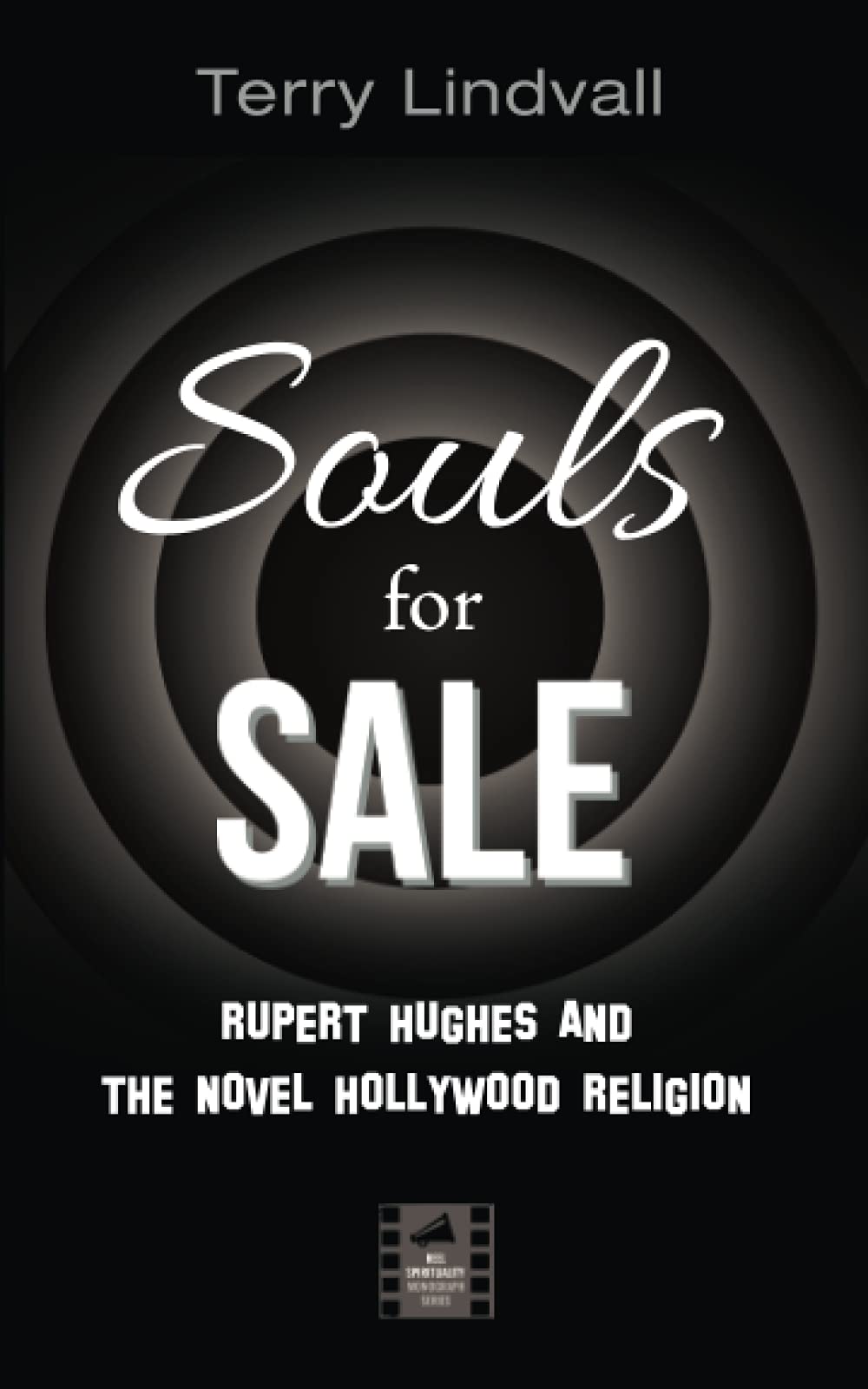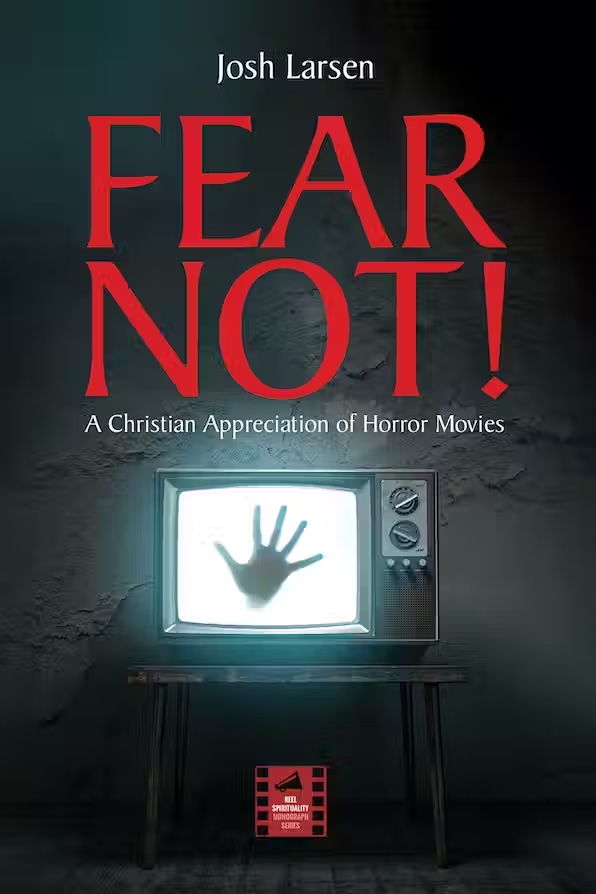“To Write” is My Calling
Writing isn't my hobby or my profession. It is my strongest and most persistent sense of vocation. “To write” is my calling, and, with the loving support of my wife, I structure my life to be faithful to this calling.
I am proud of the books I have seen published, whether I have written them on my own, contributed to them, or edited them. My intent is to be faithful to write regardless of whether I am published or not. Daily faithfulness to the call of God on my life is what matters most.
My daily writing routine was featured in a short film inspired by the Prayer of Examen. This photo is from that film and is used with permission by FULLER studio.

The Reel Spirituality Monograph Series
I co-edit the Reel Spirituality Monograph Series, which is published through Cascade Press, a division of Wipf & Stock. Below is information about each title in the series as well as my personal recollections on the publishing of each text. Each book cost about $20, is fun to read, and will expand your idea of where God is present at the movies.
I love making room for other talented writers to publish, and I am grateful for the trust they put in me as I come alongside them to help make their texts stronger.
Off the Map
by Niles Schwartz
The Spiritual Side of Michael Mann
Off the Map places Michael Mann's late works in deep focus, exploring our present relationship to cinema on a backdrop that swings from the blockbuster spectacle of Avatar to the curious intimacy of Moonrise Kingdom, ultimately suggesting the mysterious space between the viewer and the screen may yet become a sanctuary of deep spiritual reflection.
In 2015 we moved to Denver. We thought it might be a great place for our family to settle. The cost of living was lower than in California, and we dreamed of being able to buy a house there sooner than we'd ever be able to in California. Other people had the same idea, and rising real estate prices coupled with extremely low teacher pay made if difficult for us to just make ends meet in Colorado. Owning a house and the stability that promises—the American Dream—were decidedly out of reach. I spent the year we lived trying hard to figure out a way to make it work.
During that time I found myself drawn to the films of Michael Mann. I didn't know why. It just seemed right to watch his movies. I've learned to trust those leadings. I discovered that while Michael Mann's film are about cops and robbers, they are also all about men trying in vain to obtain the American Dream.
As I watched, I search for good writing about Michael Mann's films, and I happened across a very long blog post written by Niles Schwartz about Mann's film Public Enemies. What Niles had written was immaculate. He elucidated the soul of Mann's films in a way that no one else I'd read could. He saw that beneath the gun fire beat the hearts of men longing for a "normal life" as sold to them in the advertising age, and desire, as Augustine taught us, is the core of worship.
I knew a reworked version of it was the perfect text to launch the "deep dive" side of our monograph series, because in addition to being an excellent piece of writing, it also demonstrated that asking "spiritual" questions about movies would unlock new avenues of inquiry into cinema.
How to Film Truth
by Justin Wells
Searching for Deeper Truths via Documentary Filmmaking
How to Film Truth explores the history of documentary film as a search for truth by filmmakers, and a journey of discovery for subjects and audiences. This process, the act of documenting, exploring, and reflecting on our reality in all its created beauty, wonder, and mystery can itself be a devotional practice.
I've been friends with Justin Wells since I arrived in Pasadena. He was a student at Fuller before me, though I don't think we overlapped as students. The community of filmmakers at Fuller is tight, and working with Reel Spirituality has meant that I get to know and support all of them. It's an honor.
I reconnected with Justin when we moved back to Pasadena, and in the time since he'd studies at Fuller, he'd done an MFA that the Art Center College of Design. Over coffee at Jones, he told me about a paper he'd written at Art Center about modes of documentary films. With a little work, it sounded like it would be an ideal entry in the "practical" side of our series. One ethic we follow for the practical entries is that they must be written by practitioners – only people who "do" are allowed to tell other how to do. This protects us from inadvertent moralism, and it is in accord with my conviction that experiential knowledge is too rare in Christian writing. Artists theologize with their hands, or, in Justin's case, with his lens.
Justin's book turned out better than I hoped. I knew he was a skillful documentarian. I didn't know he was a terrific teacher. How to Film Truth is both a fun history of the documentary form, and an inspiring primer on how to start making documentaries yourself using devices you likely already own. Even more, following Justin's example, making documentary films might even become into an act of worship for you that helps you know God better.
Perfect in Weakness
by Colin Heber-Percy
How Tarkovsky's Stalker expands our understanding of faith
Perfect in Weakness explores Stalker as a parable of faith. Faith as folly, faith as a dangerous, last-ditch attempt to attain the unattainable. To fail, to fail again, and to carry on regardless. Stalker is about crossing borders, boundaries, conventions. To transgress, to disrupt, to deconstruct is the dark impulse behind Tarkovsky's personal vision. It is also the illicit, revolutionary message at the heart of the gospel: tear down this temple, and have faith.
We started the Reel Spirituality Monograph series to bridge a gap in the body of theology and film literature. Most of the books on theology and film being published today are edited volumes that collect a couple of dozen longish essays on a common topic into a single volume. Most of these 5K-10K word essays are terrific. Unfortunately, the volumes themselves end up being priced only to be purchased by libraries. They frequently cost upwards of $120 for a single book. I'm happy by colleagues have the opportunity to be published, but it irks me that this does little to advance the discipline and nothing to make it accessible to a wider audience. The Reel Spirituality Monograph series is designed to be accessible, and that design extends to the length of the texts, the price they are sold at, and the publisher we work with.
As the series has gotten established, we've been happy to receive unbidden submissions from theology and film scholars from around the world. They aren't always an ideal fit, but when they are, as in Colin Heber-Percy's case, it's a real joy to see our series doing what it was designed to do – providing an opportunity for theology and film scholars to be published and to be read by wide audiences.
If there was ever a filmmaker whose work warranted a thorough theological perspective on his films, it's Andrei Tarkovsky. Perfect in Weakness is a credit to its inspiration. It's a quixotic guide through a challenging film, and a clever expansion of how we reckon faith itself. It is also meant to be the first in a two-book set. Its sequel is scheduled to focus on Jonathan Glazer's Under the Skin.
Becoming Alien
by Sarah Welch-Larson
In Space No One Can Hear You Theologize
The Alien films are perceived to be a fractured franchise, each one loosely related to the others, but in Welch-Larson's hands, the series becomes six views of the idea of evil-as-exploitation, its origins, and its consequences. Each film expands on the concept of evil set forth by its predecessors, complicating that conception, and retroactively enriching readings of the films that came before.
The field of theology is overwhelmingly populated by men. The field of film studies is also dude-heavy, but less so. So if you combine those two disciplines, your potential authors become even more likely to be male. I understand why few women are working in this field. Why would someone pursue a discipline where historically they have not been welcome? I am determined to provide opportunities for more women to contribute their perspectives to the discipline of theology and film. I have been in conversation with many of the most notable women in the field. We have books in the works from two of them, and a book we worked on with another we ended up recommending for publication in a different series where it was a better fit.
I also actively seek out emerging female voices. I first read Sarah Welch-Larson's writing on the excellent long-form film criticism website Bright Wall/Dark Room. I detected a hint of Christianity in her writing, and when I looked her up online, I wasn't surprised to find that she also contributes regularly to Think Christian, the terrific cultural commentary website helmed by Josh Larsen (no relation to Sarah). I followed Sarah's work for a while and waited for my opportunity.
It came when she tweeted one day about being readily able to talk about religion and science-fiction. I pitched her our series, talked with her about potential ideas, and then she ran with it. I couldn't be happier with how this book turned out. As with Niles Schwartz's book on Public Enemies, after you read Becoming Alien you wonder how you never before asked these theological questions about these movies you know so well. Sarah opens up a whole new universe of inquiry. Studies of the Alien films cannot procede in good faith in the future without reckoning with Sarah's work.
Souls for Sale
by Terry Lindvall
Hollywood's First Satire about its Relationship with the Church
Howard Hughes's brother Rupert's adaptation of his sly novel challenged the religious hierarchy of his day, but ultimately fell by the wayside, even with the support of Hollywood icons like Eric von Stroheim and Charlie Chaplin. Souls for Sale offers a glimpse into the emerging Jazz age of moviemaking against the backdrop of a country moving from its traditional roots into the kinetic ways of Hollywood.
The community of theology and film scholars is not large, but it does have its luminaries. Terry Lindvall is one of them. I was initially thrilled when he emailed us about a book idea he was working on, because I always hoped our series would make it possible for scholars like Terry to produce work that was otherwise too idiosyncratic for most publishers or too niche to warrant a longer treatment than the 20K-30K words our books aim to be. There are lots of potential, worthwhile theological investigations of cinema that don't need to be 100K words but which do warrant more than 5K words. Our series makes that work possible.
Terry most often writes about Comedy. He also happens to be a generally hilarious person. Souls for Sale looks at one of the earliest satires every written about Hollywood and the Church. The book is a fun little time machine that shows you how, though a lot has changed, some things about Hollywoods relationship with the church have remained the same. The subject is admittedly niche, but Terry is such an engaging writer, you forget that while reading it. And besides, if our monograph series isn't the place for books like this, what is it for?
Souls for Sale is also the first book in our series that devotes serious attention to a film from the black and white era. I hope we get more of those. Too much Christian writing about movies focuses only on recent films. Cinema history is only about a hundred years young. All of it is recent.
Fear Not!
by Josh Larsen
God Meets With Us in the Darkest Darkness
Why would anyone want to watch horror movies? Why would Christians, in particular? Combining critical observation and theological reflection, Josh Larsen devotes each chapter to a different horror subgenre, connecting that subgenre to a commonly shared fear. In addition to considering how the Bible acknowledges and speaks to that fear, each chapter demonstrates how the related themes, narratives, and aesthetics of a handful of films can be viewed through a corresponding theological lens.

